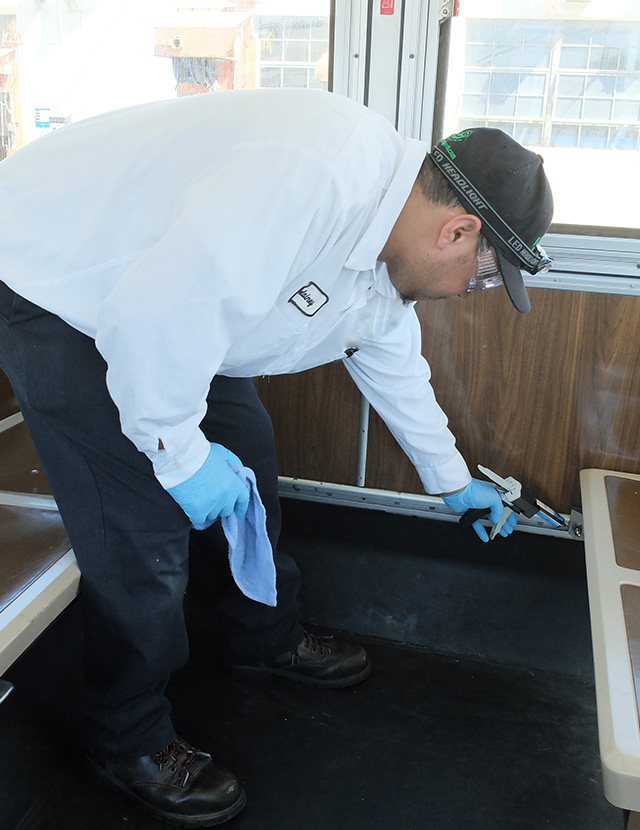Protecting Workers—and the Public—from Indoor Pesticide Exposure
Highlights

The Occupational Pesticide Illness Prevention Program identifies the kinds of jobs and types of pesticides that cause health problems in workers, such as indoor pesticide exposure, pesticides used in transit, pool chemical safety and more.
3.3K+ cases of occupational pesticide illness identified
-
Focus Areas
Chronic Disease Prevention, Environmental Health -
Issues
Asthma, Cancer -
Expertise
Health Education & Promotion
The Occupational Pesticide Illness Prevention Program (OPIPP), part of the California Occupational Health Surveillance and Evaluation Program (OHSEP), identifies the kinds of jobs and types of pesticides that cause health problems in workers. The program looks at indoor pesticide exposure, pesticides used in transit, pool chemical safety and more. Information gathered by the program is sent to the National Institute for Occupational Safety and Health (NIOSH) and the U.S. Environmental Protection Agency (EPA), which use this information to shape pesticide policy to prevent future pesticide illness. This program is part of the Sentinel Event Notification System for Occupational Risk (SENSOR), funded by NIOSH.
Studies show that workers and members of the public can become ill from pesticide use indoors. In data collected by OPIPP, the program found 3,384 cases of occupational pesticide illness, and uncovered that nearly one out of five people who reported work-related pesticide illnesses were exposed to pesticides in indoor air.
To help reduce and eliminate exposure to pesticides from indoor use, OPIPP developed guidance and resources for employers and workers, such as showcasing effective and safe ways to control pests indoors without the use of sprayed pesticides. Employers and employees can take steps to prevent pests from invading in the first place, and building managers and owners can hire pest control companies committed to using the safest and most effective treatment methods possible when an infestation occurs.
Work With Us
You change the world. We do the rest. Explore fiscal sponsorship at PHI.
Support Us
Together, we can accelerate our response to public health’s most critical issues.
Find Employment
Begin your career at the Public Health Institute.
